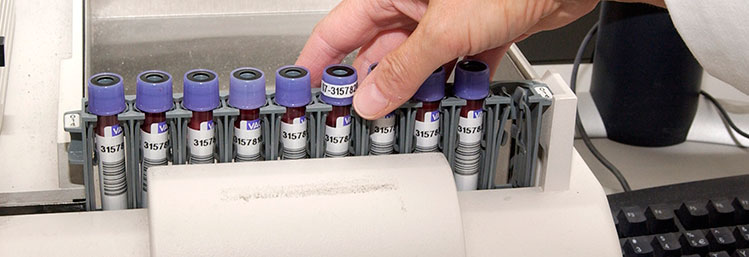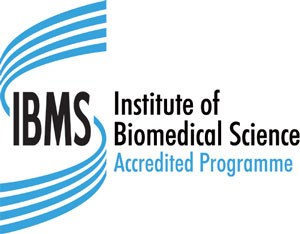
Healthcare Science (Life Sciences)
BSc (Hons)
- Typical offer for 2025
- Duration
- UCAS code
Suitable for applications.
Now I've graduated I have secured a role as a Biomedical Scientist in Pathology at Wythenshawe Hospital in Manchester, and I plan to start my MSc Physician Associate studies here in September.
Placement Year
The programme has a placement integrated into each year of the degree in NHS pathology laboratories. These placements will equip you with a wide range of skills and practical experience, boosting your employability and enabling you to deliver high-quality patient care.
Placements are in blocks. The first 10-week placement at the end of year 1 involves rotation through the different pathology disciplines. The second 15-week placement is at the end of year 2 and the remaining 25 weeks (125 days) is during year 3 of the degree.
These placements take place in your chosen discipline-specific laboratories subject to placement availability. If you express an interest in a specific discipline every effort will be made to accommodate this request, but this cannot be guaranteed.
In the final year you will attend the placement lab during term time on a part-time basis (4 days per week). The placement in year 3 runs throughout the year alongside taught modules, allowing preparation time for the research project that take place in the workplace during the final placement.
During the placement you will access the Department of Health assessment portfolio. This broadly uses the generic Health Professions Council Standards of Proficiency and HCPC Standards of Conduct, Performance and Ethics, but contextualises these for Healthcare Science. The student will also complete the IBMS registration portfolio during the three years of the degree with verification of fitness to practice taking place at the end of year 3.
Learning and assessment
A wide range of teaching methods are used to deliver the programme, which include a combination of blended learning undertaken mainly on campus.
To accommodate both the academic requirements and work-based training, the programme will require extended periods of study in years 1 and 2, beyond the standard 30 weeks.
All students have three semesters of study, with semester 3 being the work-based learning opportunity.
A number of self-directed components of Work Based Learning (WBL) is carried out whilst working in the placement laboratory, alongside the development of the Institute’s registration training portfolio.
Study support
Our comprehensive support services will help you to achieve your full potential – both academically and personally.
We provide all you need to make the very best of your time with us, and successfully progress through your studies and on into the world of graduate employment.
Our support services include:
- Personal tutors
- Disability services
- Counselling services
- MyBradford student support centres
- The Students’ Union
- Chaplaincy and faith advisers
- An on-campus nursery
- Halls wardens
We have well-stocked libraries and excellent IT facilities across campus. These facilities are open 24 hours a day during term time, meaning you’ll always find a place to get things done on campus.
Our Academic Skills Advice Service will work with you to develop your academic, interpersonal and transferable skills.
Research
The programme team are all either researchers or have NHS practitioner experience (one team member combines being an active practitioner with teaching commitments) and therefore research is integral to the teaching on the programme.
Our research expertise covers a range of areas including microbiology, cancer research, skin sciences and cardiovascular disease research. You can find out more about our two main research areas below:
All students undertake a research laboratory project which constitutes one third of the academic credits at level 6. Research is carried out in the workplace, with a supervision team combining a member of clinical staff from the work place with a University member of the teaching and research team.


